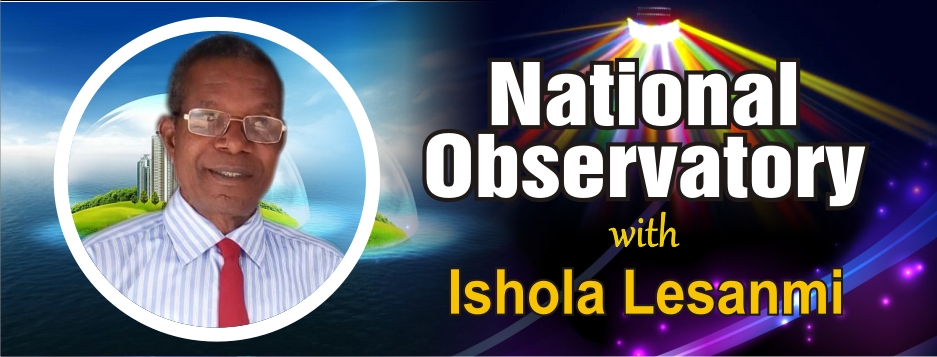The current controversy concerning the inauguration of the 7th Edo State Assembly which has been tearing the state apart for some time now should not surprise anyone who has paid some scant attention to the peculiar political psychology of Nigerians.
For a couple of weeks now, the entire print and broadcast media in the country, including the social media, have been agog with the issues concerning the happenings in the Edo State House of Assembly. Though, the matter is already in the court of law, yet many public affairs commentators and analysts have aired their views on the matter which directly threatens the foundation of our current constitutional experiment.
From all that one has heard and read so far through the public commentaries and analyses earlier referred to, one significant Nigerian characteristic becomes apparent. And that characteristic, which has been the bane of our national politics and nation-buiding since our independence is our inability to see the total picture of any political event.
Most Nigerians, including the supposedly well educated, are so much attached to their selfish and clannish interests to the detriment of national interests. This negative attitude would continue to adversely affect our country until we all realise its dysfunctional effect on our body politic and exorcise it from our mental make-up.
Some of us claim to be Christians, yet one of the basic injunctions of our Lord Jesus Christ that we should do unto others as we would like them do unto us, does not always manifest in our relationships whether economic, social or political. The individual rights that we claim for ourselves and for which we are ready to do battle, we find difficult to concede to others.
One important mark of the modern citizenship is the understanding of the place of Justice, equity and fair-play in societal relationships. It is upon this singular factor that democracy thrives. It is upon the realisation of this fact alone that the fathers of democracy in the Greek city states did not extend the electoral franchise to every Tom, Dick and Harry in the city states. That privilege was only extended to the “citizens” who appreciated the value of democratic participation and the positive contribution it could make to the development of the society of which they were members. In such environment, there was no room whatsoever for impunity.
It is from this background that one is compelled to view the current Edo State House of Assembly imbroglio and the public reactions of some notable elders, commentators and so-called analysts with distaste and utter contempt.
The issues involved in this matter are so obvious that one would naturally have expected the generality of peace-loving Nigerians to condemn the actions of the Edo State Governor in no uncertain terms. The Nigerian Constitution, our legal grund-norm, provided for the Governor to issue a proclamation for the official and ceremonial inauguration of the State Assembly after the end of the Assembly elections.
By the nature of our constitution, with its intrinsic principle of separation of powers, the Governor has no duty in the Assembly other than to ceremonially inaugurate and declare it open for the commencement of the legislative session. But quite amazingly, it was alleged that the Edo Governor’s proclamation was done in such a way that only nine members of the Assembly of 24 members were present during the inauguration during which the Speaker of the House was elected.
From all the facts available, it can be deduced that this patent illegality was hatched and implemented by the minority members of the Edo Assembly with the connivance of the Governor and assisted by the Clerk of the House.
In my humble opinion, this is nothing but the highest height of executive impunity the type that is capable of derailing this nascent democracy that we currently enjoy.
The sad and most disturbing aspect of the matter are the views and sentiments canvassed by majority of the so-called public commentators and analysts that had dominated the national media space since the matter started. Rather than address the issues in dispute, how only nine out of 24 members of a House of Assembly can legally meet behind the backs of their colleagues and purport to conduct the business of electing the leadership of the House, most of the commentaries and and analyses had centred around irrelevancies- godfatherism, power struggle between Governor Obaseki and his party chairman, Oshiomhole, second term politics etc.
All such may well constitute the motives or rationale for the actions of the Governor and the minority members of the Assembly. However, the fact remains that, from whatever angle the issue is considered, the so-called inauguration of the Edo House of Assembly and the election of the leadership is legally untenable and politically dangerous. You can never have a good reason for doing an unlawful thing! Whatever is unlawful cannot be legally sanctioned.
Let us take a look at a few of the commentaries, analyses and interventions of some legal and public affairs pundits which appear typical of the majority of opinions that had been expressed on the matter so far. A notable political personality has questioned the constitutionality of the National Assembly’s ultimatum to the Edo State Governor to issue a genuine proclamation for a proper inauguration of the State Assembly. According to this political figure, the Governor, being a state sovereign, cannot be issued an ultimatum by any agency of the federal sovereign or the National Assembly.
Two Sovereigns coexisting within the same national boundary! What an abnormal political theory as propounded by a former chairman of a national political party! Any wonder that this party chairman almost ran the party aground before he was quietly eased out.
Another pseudo legal pundit also affirmed the unconstitutionality of the National Assembly threatening to take over the Edo Assembly, claiming that the level of crisis has not reached the point to warrant the threat. He cited section 11(4) of 1999 constitution to support his argument. But section 11(1) of the constitution which deals with public order and public security provides thus: “The National Assembly may make laws for the Federation or any part thereof with respect to the maintenance and securing of public safety and public order and providing, maintaining and securing of such supplies and services as may be designated by the National Assembly as essential services and supplies.”
In addition to the above, section 11(4) specifically provides: “At any time when any House of Assembly of a state is unable to perform its functions by reason of the situation prevailing in that state, the National Assembly may make such laws for the peace, order and good government of that state with respect to matters on which a House of Assembly may make laws as may appear to the National Assembly to be necessary and expedient until such time as the House of Assembly is able to resume its functions; and any such laws enacted by the National Assembly pursuant to this section shall have effect as if they were laws passed by the House of Assembly of that state….”
It is strange that some people can not yet see how a situation which permits nine members of a legislative House of 24 members to continue to pretend to make laws for the state is a threat to the peace, order and security of the entire state. This is more so when the remaining 15 members who are elected to represent their constituencies are completely sidelined and banished from the House of which they are legitimate members.
Every sane observer who has not been blinded by bias and senseless partisanship cannot but see such situation as a direct invitation to anarchy. Under this circumstance, if the National Assembly rightly foresees the looming state-wide political disorder in Edo State and take steps to prevent it, how on earth can that amount to the National Assembly overstretching its powers granting the constitutional provisions earlier quoted.
In conclusion, it must be stressed that the scenario playing out in Edo must not be allowed to go unchallenged, otherwise we may be unwittingly endangering this our hard-earned democracy. We must not fold our arms and allow some political desperadoes to derail our current political freedom no matter how circumscribed.
We cannot afford a repeat of what happened in Ekiti State during the better forgotten Ayo Fayose regime when the then Governor illegally banished the majority members of the House of Assembly from the State and constituted the Assembly with only six or seven members throughout his tenure as Governor. From the look of things, Governor Obaseki may be attempting to follow in the footsteps of Ayo Fayose; but I sincerely hope that this time around, such impunity would not be allowed to stand.





